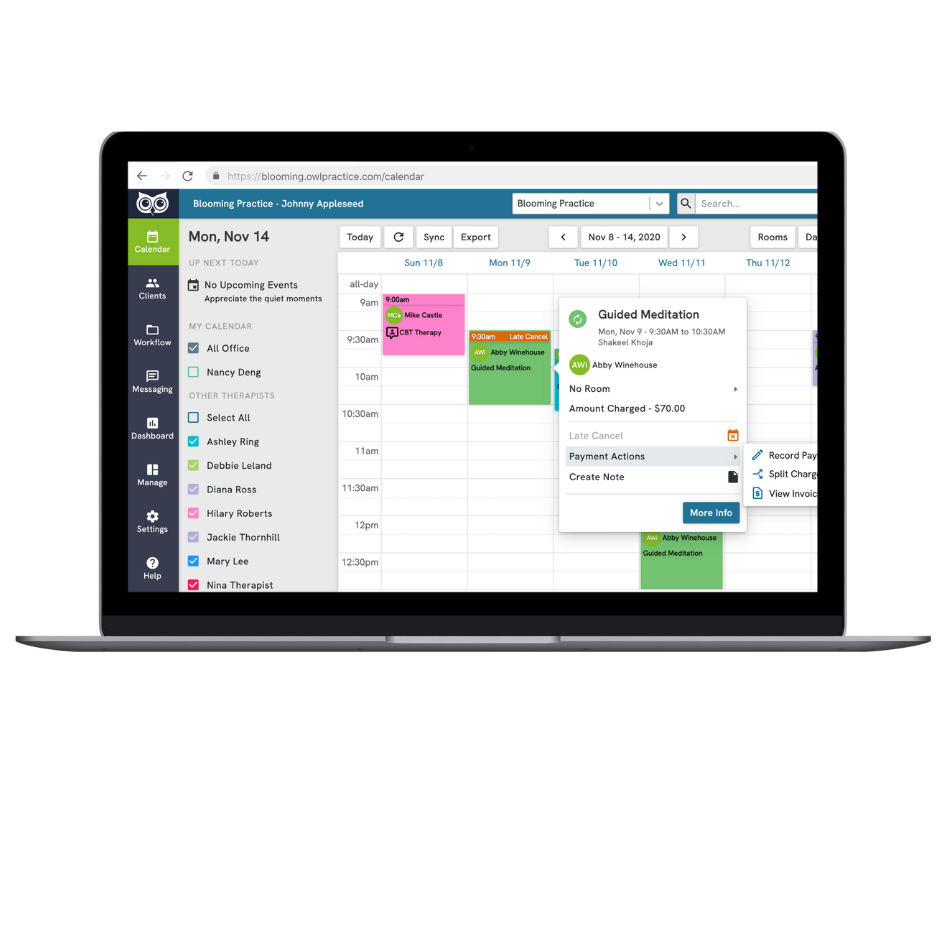One of the realities of being a professional, especially in the field of mental health, is there’s always more to do. This constant, non-stop workload can take a toll on your own mental health, resulting in being less productive. In other words, by trying to do too much, you’re actually able to do less.
So, what’s the solution? Try inverting the way you look at things: By doing less, you can actually accomplish more. Although that may sound counterintuitive, there’s a method to the madness. Let’s take a closer look.
Energy is the Limiting Factor
In your daily battle with your to-do list, you probably tend to think of time as the limiting factor. It’s not. In actuality, it’s your energy reserves that keep you from reaching your optimal level of productivity.
You only have so much energy in a day. This means that, by taking on too much at once, you aren’t able to focus that energy on individual tasks effectively. When you spread your energy too thin across numerous tasks the quality of your work suffers. It’s much easier to take on only four or five tasks instead.
One of the best ways to get an accurate measure of your time-to-energy ratio is to use an effective Scheduling tool, like the one included with Owl Practice. You can see your day laid out in front of you, so you can determine ahead of time where you want to direct your energy. It can help you make the mental shift from, “It’s an 8-hour workday”, to “What can I get done in an 8-hour workday”.
Do You Get a Feeling of Accomplishment?
Do you get a feeling of accomplishment from your daily workload? If you don’t, it can kill your motivation.
No matter how hard or long you work, you’re not likely to finish off a 20-task to-do list in a single workday. By the end, you’ll be left looking at your list thinking, you barely made a dent in it, even though you may have done quite a bit of work.
One of the best ways to combat this is to scale your daily to-do list back. Rather than using a lengthy master to-do list, take five of the most critical tasks on it and focus on them instead. This makes your daily workload much more manageable and gives you an accurate measure of what you’re able to accomplish. Completing only four out of twenty tasks in a day is defeating but accomplishing four out of five tasks in a day is what most people consider a good day’s work.
Owl Practice offers you an excellent way to scale your workday back to the essential tasks. Our practice management software and workflow tools help you better structure your schedule and keep you focused on what you really need to accomplish each day.
Multitasking is the Enemy
The stereotypical image of the workaholic talking on their phone, responding to emails, and taking a meeting, all at once, in no way reflects how productive they actually are. In fact, a recent study performed by Stanford University found that multitasking lowers your efficiency and performance since your brain can only focus on one thing at a time. When you try to do more than one thing at once, your brain cannot perform both tasks successfully.
This is another reason why it’s best to focus on the five-item to-do list. Rather than trying to accomplish too many tasks at once, try limiting yourself to a set number of assignments so you can put all of your energy into one task at a time. As per the study, multitasking is less productive than doing a single thing at a time.
Taking Breaks
Even if you’re optimally using your energy and focus to accomplish a few tasks every day, you still need to think about the importance of downtime.
If you want to be at your best, you’re going to need to give yourself time to rest and relax. This could be whatever form of rest works for you, like watching Netflix, spending time with your friends and family, or going to the gym. When you’re feeling swamped at work, these things can feel like a waste of time, but they’re just as important as the time you spend working.
If you overload yourself, and if you refuse to give your brain time to rest, you’re going to run out of energy fast. Worse still, your executive functioning and creative abilities are going to be limited. However, by taking regular breaks, you can recharge throughout the day, allowing you to better focus on the tasks at hand.
All of this is easy to say in theory, but in practice, it can be much more difficult. You genuinely might have twenty things on your daily to-do list that need to be accomplished, and limiting it to only five would hurt your practice.
The solution is to get as many of those twenty things off your plate as possible, shifting them over to others at your practice or, even better, automating them.
That’s one of the areas where Owl Practice excels. Routine administrative tasks, like scheduling appointments, sending out invoices, and workflow management can be shifted over to Owl Practice. Patients can book their own appointments and automatic reminders will be sent out near the date. Professional invoices can be sent out on a schedule, with automated reminders for your clients to pay. Plus, organizing what you need to accomplish in a day is a breeze with our workflow management tools.
If you’d like to see everything else we offer mental health professionals of all kinds, start your free trial of Owl Practice today! And if you have any questions or comments about our services, we invite you to contact us at support@owlpractice.com.
As always,
Practice Wisely








